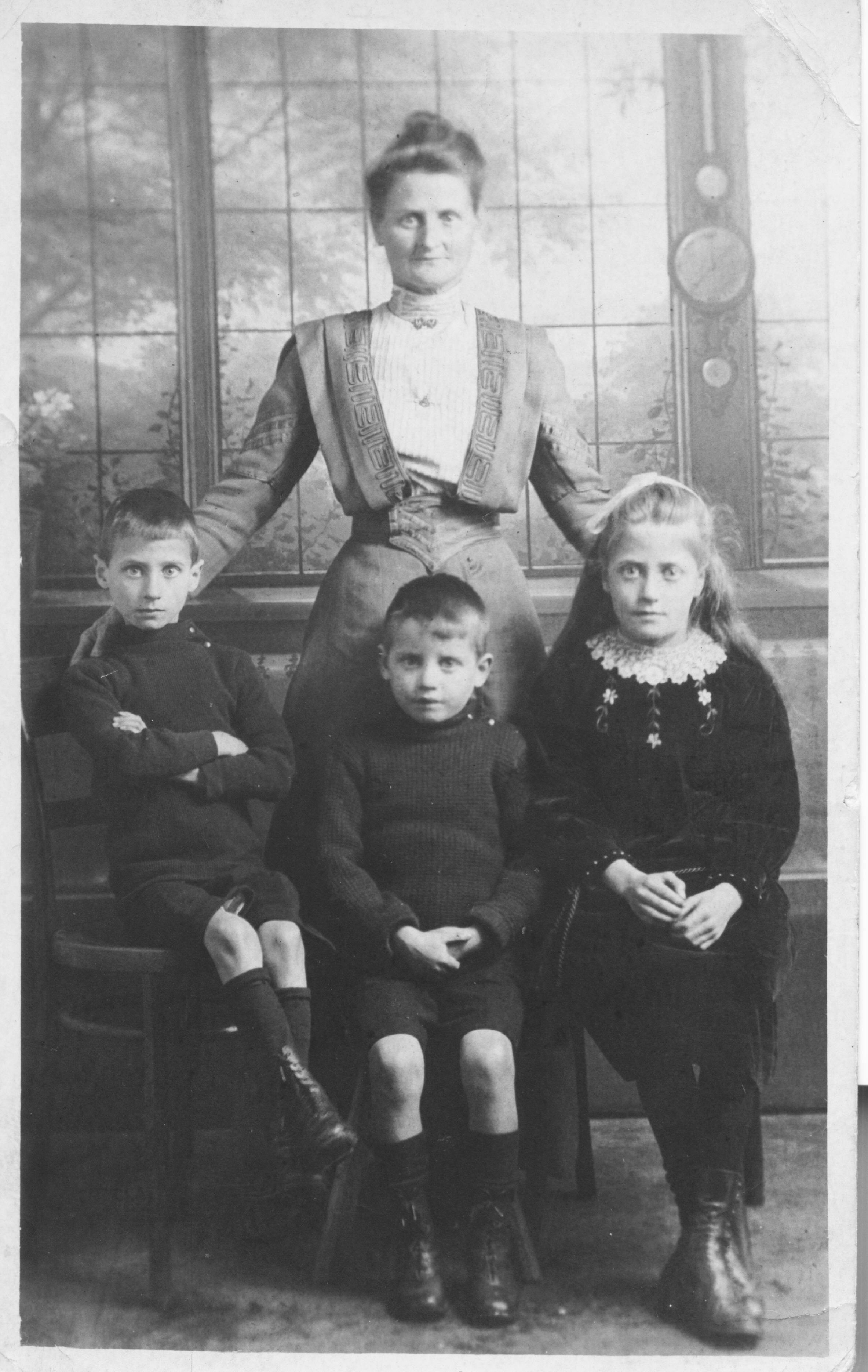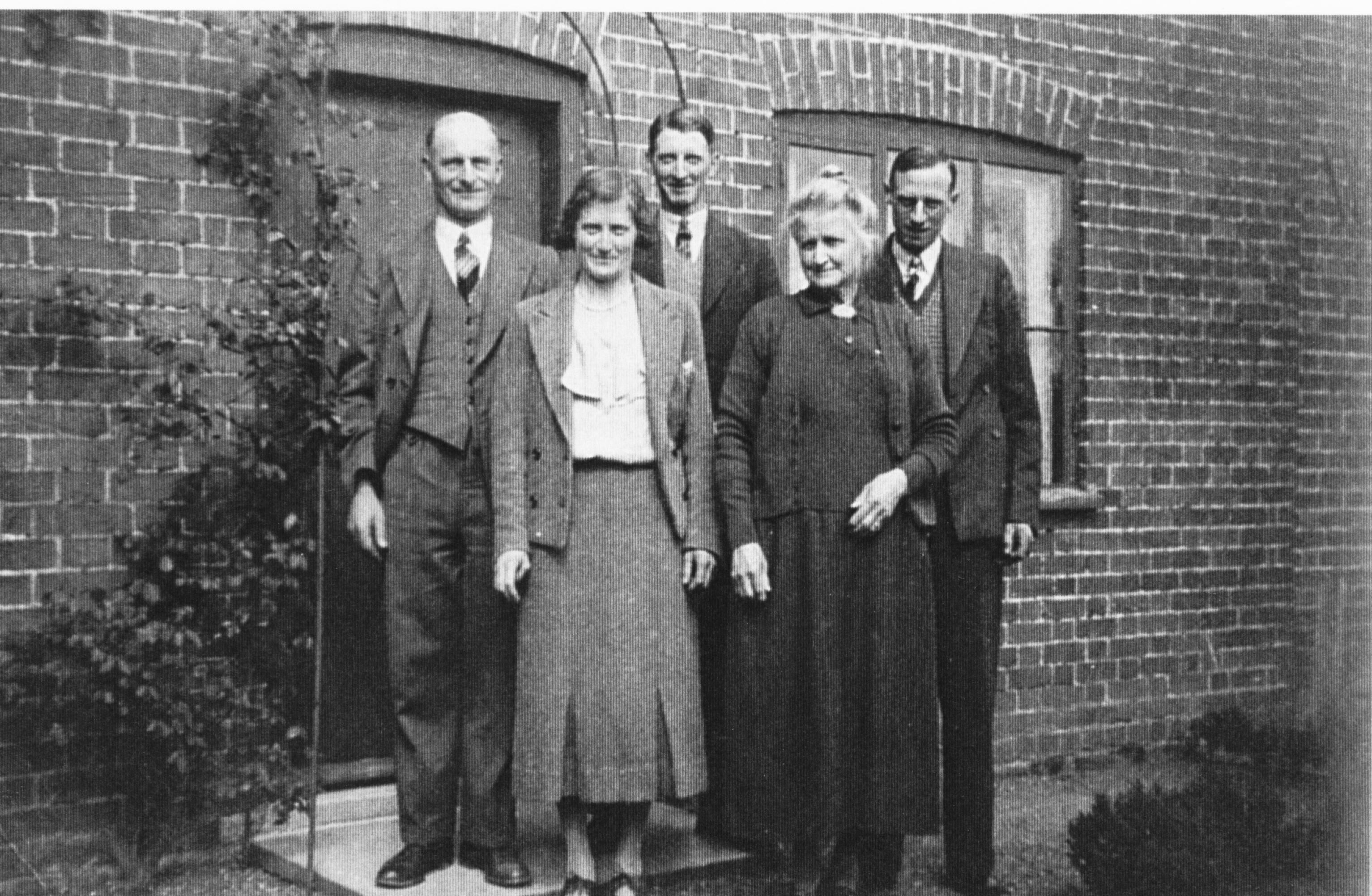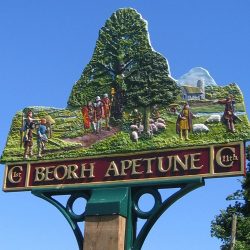ALFRED JOHN BOGGIS MM
18279, Corporal
9th Battalion, Norfolk Regiment
Who died aged 37 on 8th October 1918
Buried in Prospect Hill Cemetery, Gouy, France
Family Background
Alfred and Sabina Boggis’s son Alfred John was a mature man compared to the norm of the WW1 soldier in the British Army
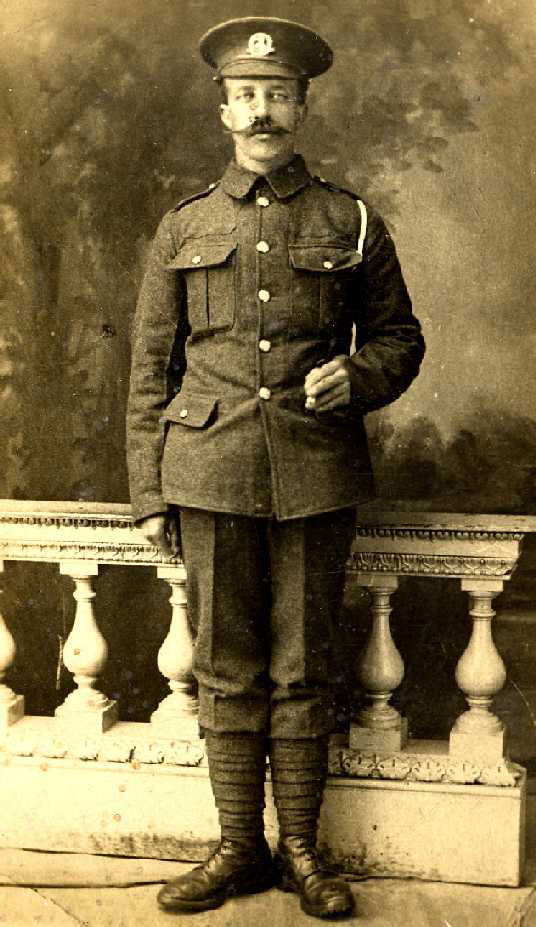
He was thirty-seven years old when he died and left his wife Rosa to bring up their sons Alfred and Herbert and daughter Ivy.
Military Service
We have no details to tell us, until further research, about Alfred Boggis’s military service other than he was with the 9th Norfolks, a Kitchener’s Army Battalion raised in Norwich on 9th September 1914 – an indication that he volunteered to fight right at the start of the war.
The Battalion was blooded in September 1915 in the battles for possession of the Hulluch quarries to the north of Loos. It then saw action in the Ypres Salient and in the Battle of the Somme before returning to the Loos area in Northern France in October 1916.
On the night of 28th/29th April 1917, the 9th Norfolks were in the Front Line – near Hill 70, to the north of Cite St Laurent in the Loos battlefield area – during a fierce exchange of gunfire between the British and the Germans that inflicted serious casualties in the Norfolk’s trenches.
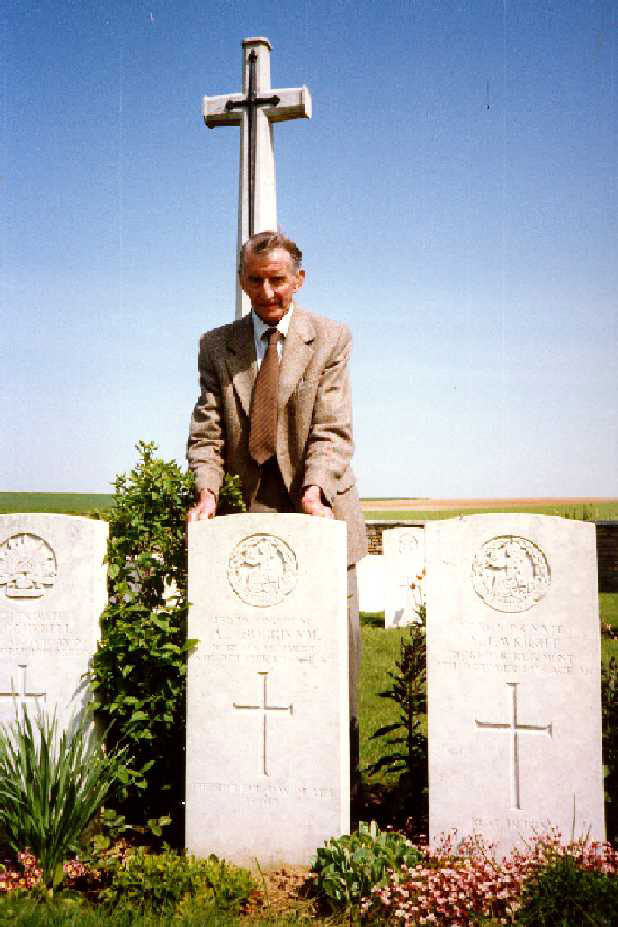
During this action Private Alfred Boggis won the Military Medal for his actions that were described in this letter dated 9th May 1917 sent to him from Major General Ross Commanding 6th Division: “Your Commanding Officer and Brigade Commander have informed me that you distinguished yourself near Loos on the night 28/29 April. While under heavy shell fire you attended over twenty wounded cases. Your great courage and determination undoubtedly saved several lives”
Alfred died with just a month to go before the war’s end in an attack by British and American forces on the village of Brancourt-le-Grand near St Quentin.
At 5.10 am on 8 October the Norfolks began an advance across open ground to the south of Brancourt but encountered heavy machine gun fire from both the village and Jonnecourt Farm – on a knoll to the south. The advance faltered and then stalled.
So that they could fall back in good order, the men who were unscathed were re-organised into only two Companies and regained their original start-line at 6.20 pm, thirteen hours from the start of the attack.
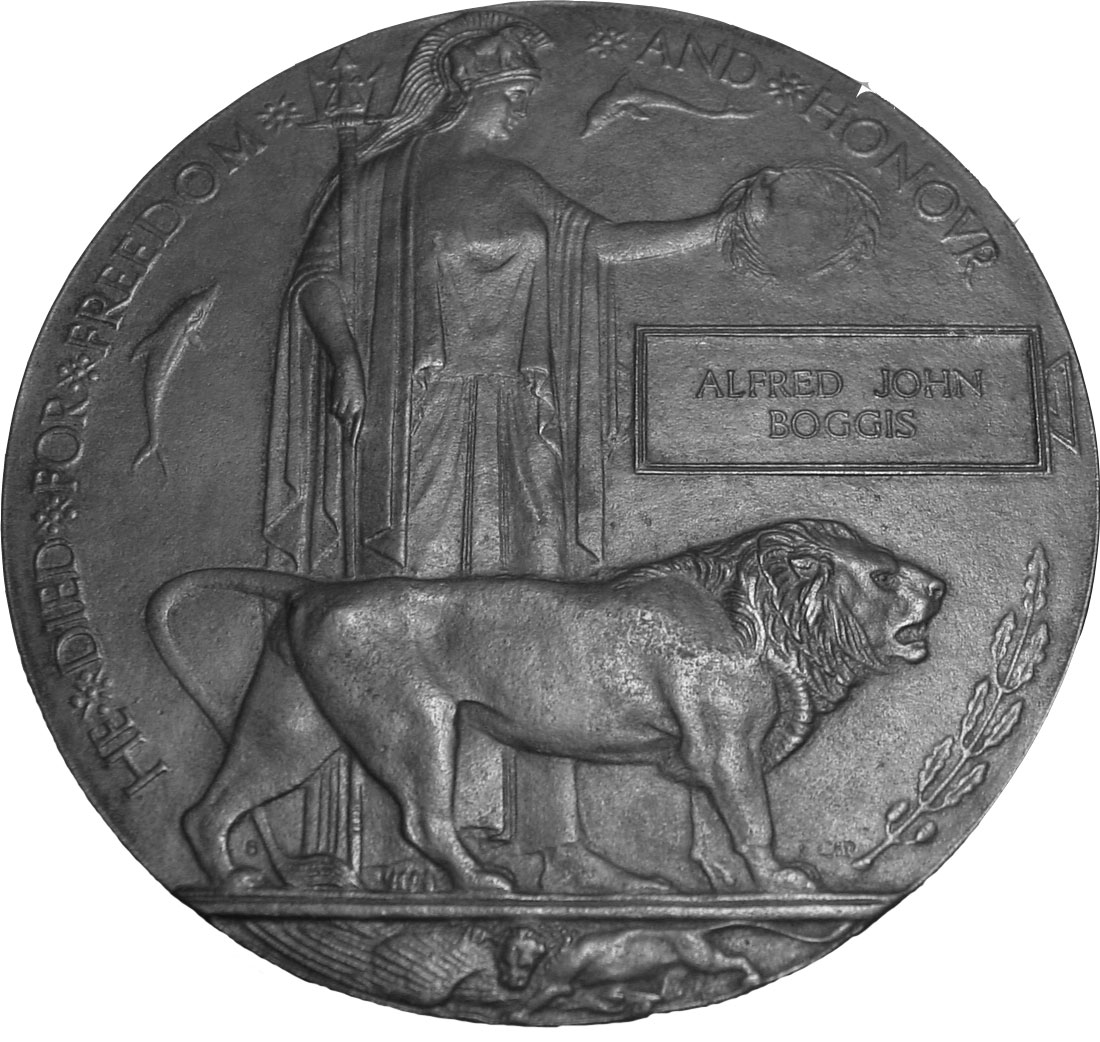
At some time in those thirteen hours Alfred Boggis was killed or received mortal wounds. He was buried at Brancourt-le-Grand but the British war dead from that mainly-American cemetery were later re-interred at the British war cemetery at Prospect Hill Cemetery, at Gouy near Cambrai.
More Family Information
Alfred Boggis’s sons Alfred and Herbert lived all their lives in Bergh Apton. Herbert, in later life as a widower, and living in his parents’ home on Threadneedle Street, was befriended by his neighbour Di Webb who became, to all intents and purposes, the daughter Herbert never had.
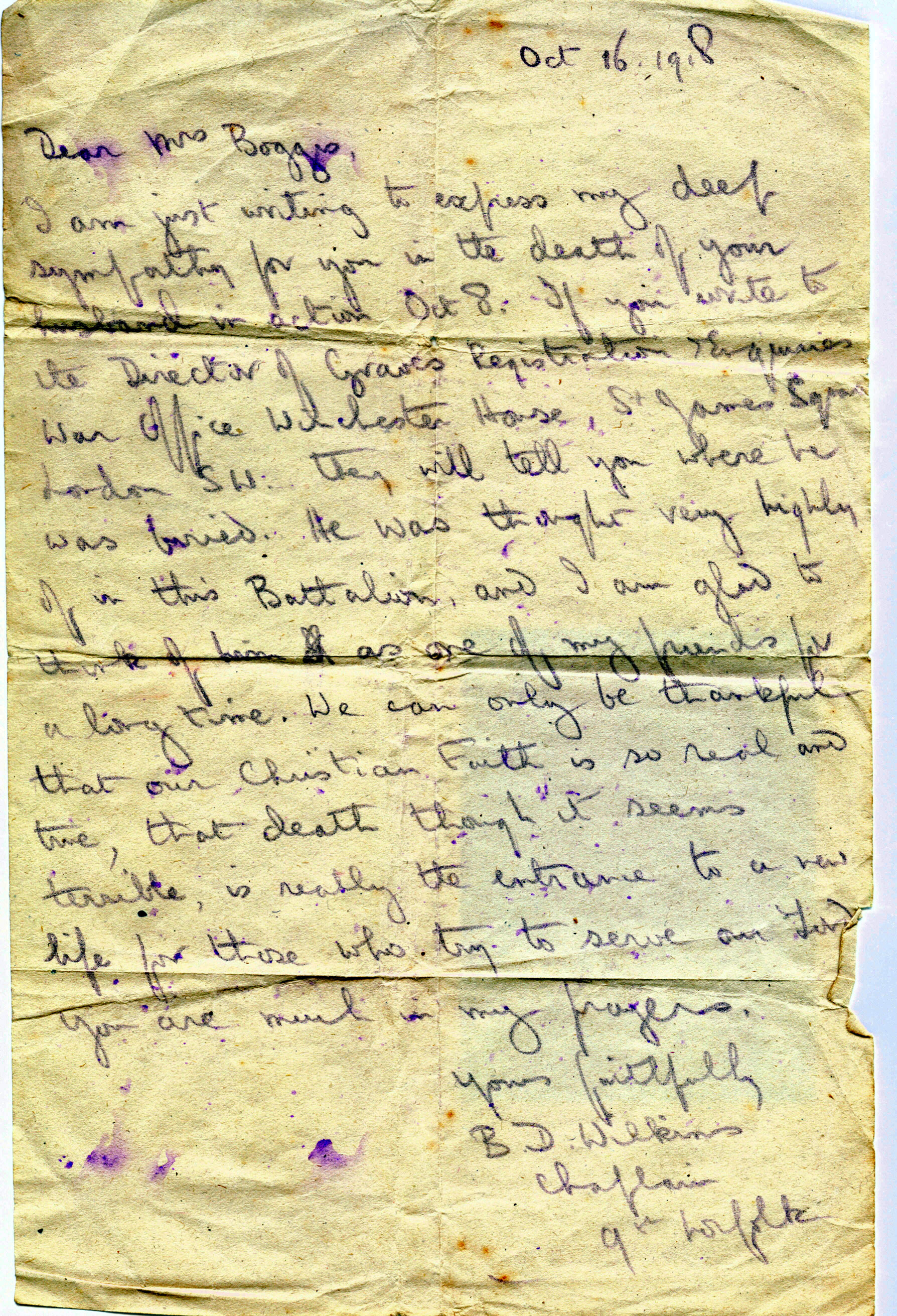
In his father’s memorabilia that Herbert passed on to Di was a letter to Rosa Boggis from Chaplain Wilkins of 9th Norfolks in which he told her that Alfred “was thought very highly of in this Battalion and I am glad to think of him as one of my friends for a very long time”.
In the late 1970s, Di and her husband Bernie took Herbert to Gouy to visit his father’s grave in Prospect War Cemetery.
